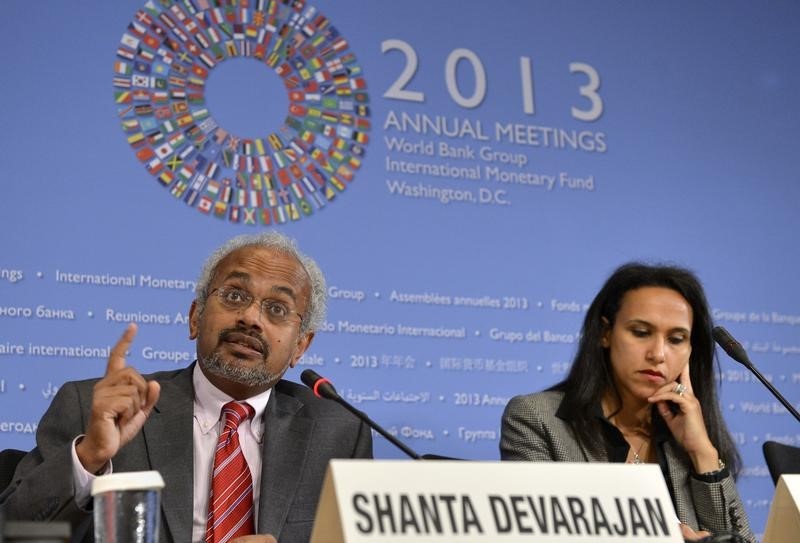By Karin Strohecker
LONDON (Reuters) - Falling oil prices have led to welcome reforms of the subsidy programmes in Gulf countries, but they urgently need new ways to distribute their oil wealth and shrink their public sectors, the World Bank's chief economist for the region said on Tuesday.
The Gulf, dominated by oil exporters, has relied on crude-oil revenues to fund governments over the past decades. But budgets have been buckling under the pressure of bloated public sectors and lavish welfare spending since oil prices dropped from some $115 a barrel last June to as low as $45 in January.
In April, the World Bank estimated the decline in crude prices could cost the Gulf Cooperation Council (GCC) countries - Saudi Arabia, Kuwait, the United Arab Emirates (UAE), Qatar, Oman and Bahrain - $215 billion, or 14 percent of their combined gross domestic product this year. Consequently, the region may record a fiscal deficit for the first time in four years.
"It's impressive how they are all mobilising to do something about the subsidies," Shanta Devarajan, the Bank's chief economist for the Middle East and North Africa, said on the sidelines of a MENA economies conference at think-tank Chatham House. "However, these countries really need to find a new way to distribute their petroleum revenues."
Kuwait raised wholesale prices for diesel threefold at the start of 2015, though later in January reversed some of the increase following political opposition.
Devarajan said GCC countries should think about giving the funds used to keep fuel prices artificially low directly to local people, as happens in the U.S. state of Alaska or the Canadian province of Alberta, where citizens receive an annual payout from oil revenues.
"Once you start removing subsidies and move to direct transfers, you also get a lot of advantages, like less pollution, and less traffic, and more consumption of other goods," Devarajan said.
The region also needed to tackle its bloated public sector, he said.
"We have not seen much curtailing to public spending ... and these countries urgently need to shrink the public sector."
Across the region, some 80 to 90 percent of the male domestic labour force was employed in public-sector jobs, Devarajan estimated.
"These jobs are often well paid, and are not very stressful."
This also hampered private-sector job creation, in turn preventing the development of a local labour market that offered prospects to young people in a region suffering from entrenched youth unemployment, he said.

According to World Bank Data, unemployment of 15-24 year olds in Saudi Arabia stood at 29 percent in 2013 and 20 percent in Kuwait.